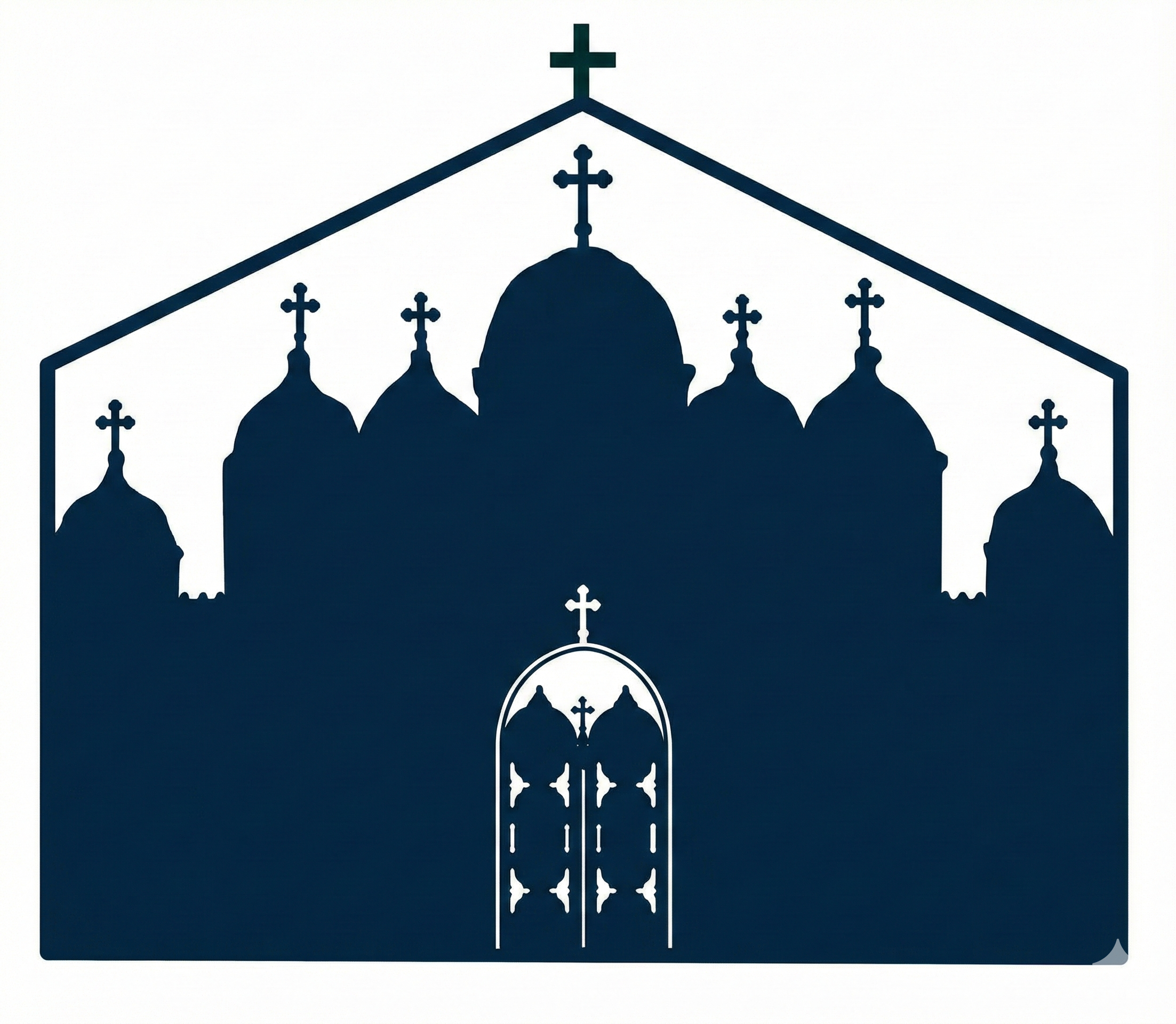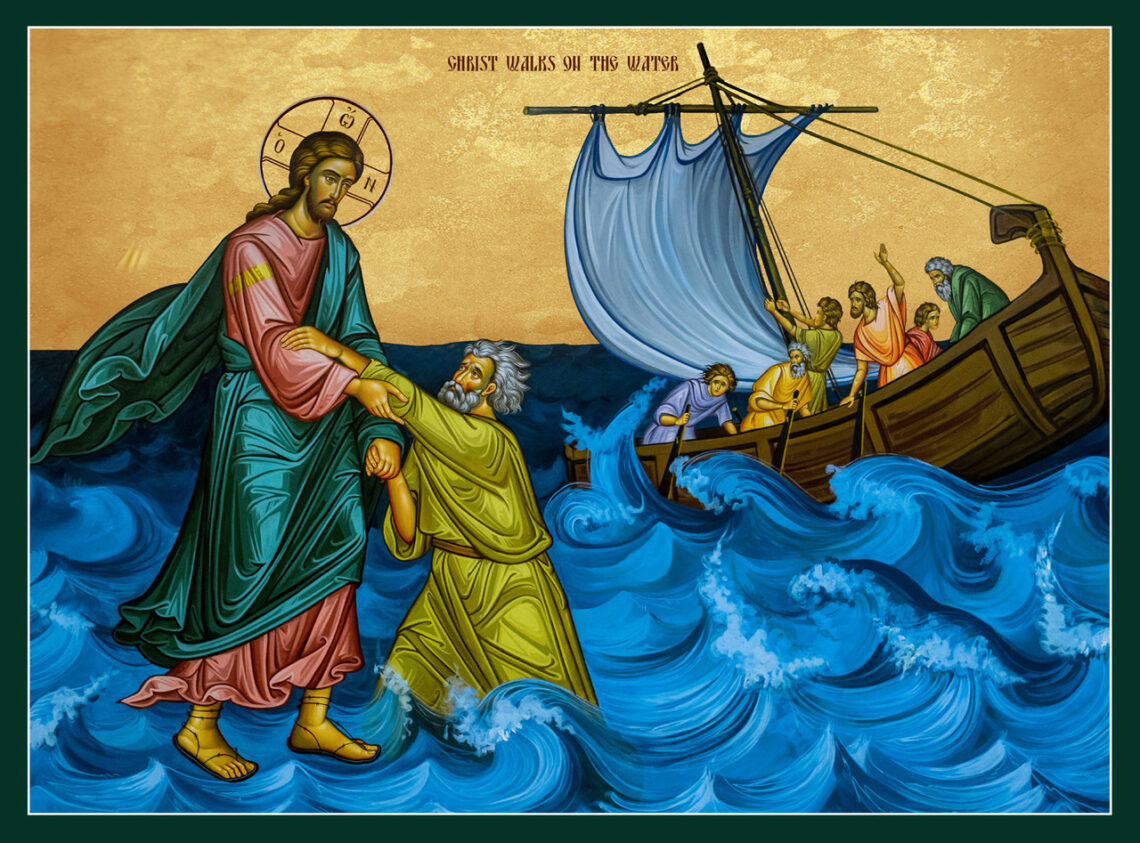Matt 14:22-34
In the name of the Father, the Son, and the Holy Spirit
From the time we were young children, we have been repeatedly told to be good children. Or we have been scolded. Eventually, when we reach an age where we can think for ourselves, we will begin to govern ourselves without being taught or scolded. This is thanks to the many scoldings. We always reflect on our actions, thoughts, and the way we are, and we want to be better people, even if only a little.
However, because we have been scolded, reflected on ourselves, and blamed ourselves for so long in order to become better people, even when we come into contact with the gospel of Christ (good news), we tend to miss out on the joy and end up piling up burdens on top of burdens. There is a danger of this happening in today’s Gospel.
The disciples were in a small boat on a windy midnight lake, heading for the other side. The boat was tossed about by the headwind and could not move forward. Then a black shadow approached the boat through the waves. The disciples, trembling at the sight, heard a voice. “It is I. Do not be afraid.” It was Jesus. Hearing this, Peter asked the Lord, “Let me also walk on the water,” and he slowly lowered his feet into the water and began to walk on it. Amazingly, he was able to walk! However, Peter flinched for a moment as the raging waves and wind raged, and he immediately sank under the water. “Lord, help me,” Peter cried out. The Lord pulled him up by the hand, and scolded him, saying, “You of little faith, why did you doubt?” The disciples bowed down to him and said, “Truly, you are the Son of God.”
“If we do not have strong faith, we will sink like Peter in the rough waves of the world. Do not doubt God, but hold fast to your faith.”
That is what we think at first. We see ourselves in Peter, who was scolded by the Lord for his weak faith, and we begin to reflect on ourselves. It is a habit of the mind that has come from being scolded for so long to “be a good boy,” and then scolding ourselves. And then the sermon adding insult to injury. “Believe in God and do not doubt.”
However, this Gospel is not read on this Sunday, on Lord’s Day, on this joyous feast which remembers the resurrection of the Lord, to make us reflect on ourselves or to scold us. No, it is read so that we may share in the joyous amazement of the disciples who fell down before the Lord who had saved Peter and calmed the wind in an instant, saying, “You are truly the Son of God.”
The Son of God will cross the violent sea of this world with us. God, our Creator who can walk on water and calm storms in an instant, is close to us. He hears the cries of us who, driven by doubt and disbelief, repeatedly drown in the sea of this world, and He will pull us out again and again. Here and now is the beginning of a life of living with Christ the Savior.
But if you still can read today’s Gospel as nothing more than a lesson for reflection, let me say this: If you think that only strong faith can save you, then your faith must be like that of Job. A perfect faith like that of Job, who lost his possessions and children in an instant and said to God, “Naked I was born, and naked I will return there. The Lord gives, and the Lord takes away.”
Can you have that kind of faith? Isn’t it precisely because we can’t have it that Christ was Peter’s joy, and our joy?
“But Father, if we doubt, we will be swept away by the waves. Aren’t we being taught to have strong faith?”
If you say this, then let me ask you a question. Do you think that you are walking on the waves, that you have not yet sunk into the rough waves? We are already being swept away by the rough waves and are about to drown. There is no time to be solemnly “reflecting” on the weakness of our faith. We must cry out at the top of our voices, “Lord, help me,” and yes, “Lord, have mercy,” along with Peter, who is tossed about by the waves. The strength of faith is first and foremost the intensity and depth of this desire, before it is the strength to not doubt.

